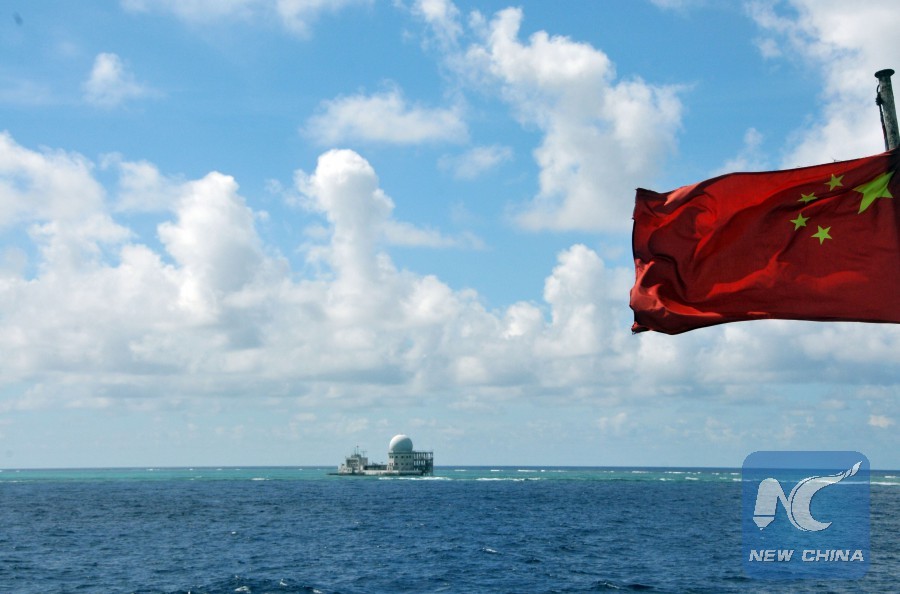
A fleet of fishing vessels arrive at Zhubi Reef of the South China Sea on July 18, 2012. The fleet of 30 boats, the largest ever launched from China's southernmost province of Hainan, planned to fish and detect fishery resources near Zhubi Reef. (Xinhua/Wang Cunfu)
MADRID, June 14 (Xinhua) -- The director of the Observatory of Chinese Politics of Spain, Xulio Rios, said the key to the solution to the dispute over the South China Sea is consensus, "not unilateral arbitration. The first one brings positions closer, while the second aggravates disputes."
The dispute over the South China Sea are about to enter in a new phase. It is expected that this June, the Permanent Court of Arbitration will announce the decision on the arbitration case brought by the Philippines.
However, whatever the content, its legal and effective value is void because China has adhered itself to the reserve clause of the Montego Bay Convention, the United Nations Convention on the Law of the Sea (UNCLOS), Rios said.
He explained that according to articles 297 and 298, China could refuse arbitration on those issues where the country did not accept the treaty's rule, especially when affecting sovereignty issues. China did so through a Note Verbale in August 2006, addressing the UN Secretary General.
According to law, the basis of any arbitration is the prior acceptance by the parties and they are the ones, with the assistance of the court, to determine a solution in order to end the conflict.
If the court in The Hague cannot achieve a consensus between the parties, arbitration is useless from a strictly legal and operational point of view, as it will not provide any solution to the dispute. This means the ultimate cause of the requested decision is not legal but political.
The intervention of the court in these disputes is part of a strategy to put pressure on China, which at the same time is inseparable from the growing U.S. involvement in the litigations.
The increasing presence of the U.S. naval and air fleet in the area, carried out on behalf of the defense of freedom of navigation, violates the content of the Article 58.3 of the Montego Bay Convention, which stipulates that actions by third parties shall comply with the laws and regulations of the coastal country.
This obligation is reiterated in Article 301. The increased frequency of activities by the United States exponentially increases the risks of military accidents, the director said.
The expert also said the Hague Court has the opportunity to declare itself incompetent over various issues.
He stressed that in any case, far from solving the problem, the arbitration can lead not only to a long and complicated legal battle, but also to an exacerbation of tensions in the area.
He said a solution should be found as a result of bilateral negotiations.

